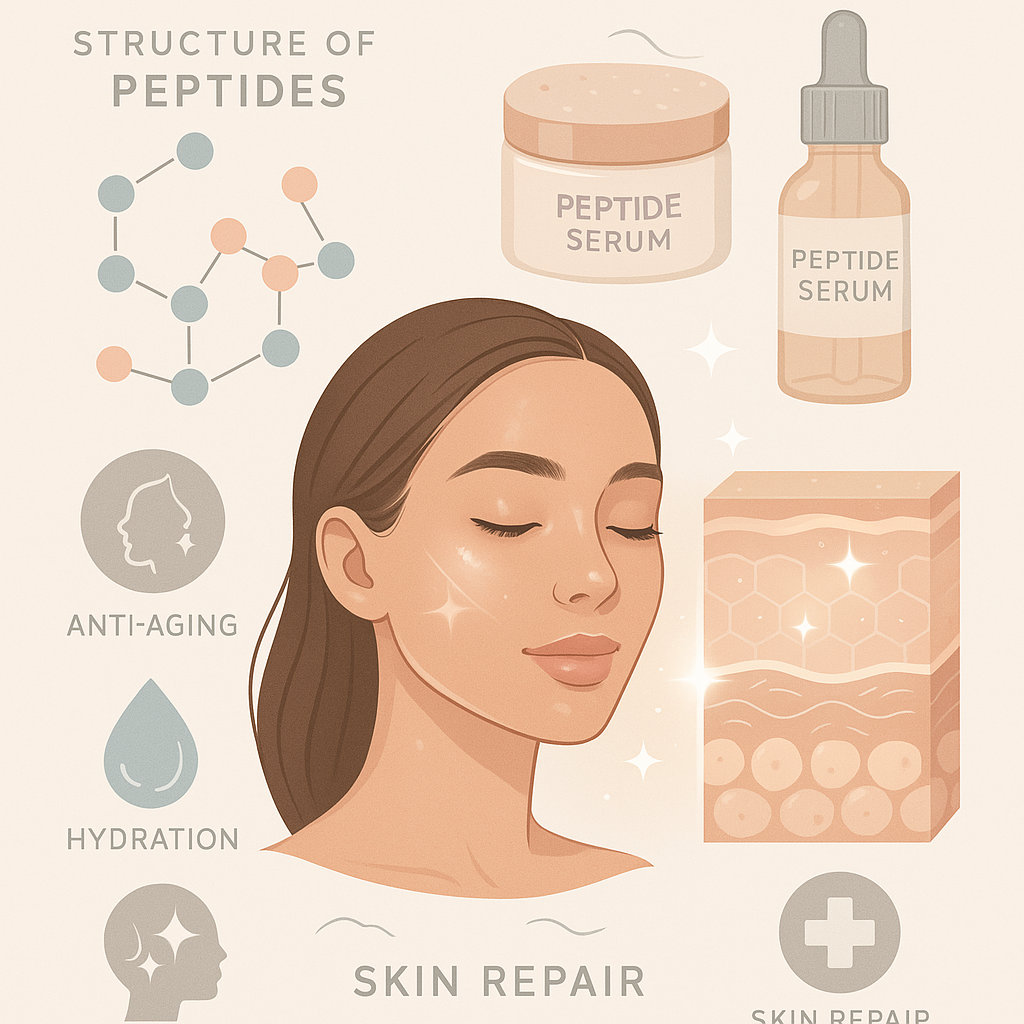Many beauty experts have become very interested—and impressed—by peptides in skincare. Anyone hoping to treat the signs of aging, keep the skin healthy and have a radiant look now uses peptides in their products.
So, what are peptides? And why are they seen as revolutionary in current skincare?
What Do Peptides Mean?
A collection of amino acids forms peptides, the same basic material as collagen, elastin and keratin, key substances for great skin health and youth. Basically, peptides serve as signals that ask your skin cells to do things such as generate extra collagen or mend damage.
Topical products with peptides can activate skin functions to enhance the texture, tone and toughness of our skin.
Types of Peptides Used in Skincare
Peptides can mean several things in skincare, as a mixture of types may help the skin in different ways.
- Signal Peptides: Increase collagen and elastin in the skin to make it firmer and reduce delicate lines.
- Carrier Peptides: These minerals are delivered by them to the skin to aid healing and renewal processes.
- Enzyme-Inhibitor Peptides: These peptides slow down collagen from breaking down.
- Neurotransmitter-Inhibitor Peptides: Using Neurotransmitter-Inhibitor Peptides will ease facial muscles and reduce expression lines, just as Botox does without any needles.
Why Peptides Are Good for Skin?
Peptides can add positive improvements to your routine such as:
- Your skin may look more stable when you press and release it.
- Angular Cheilitis Better Skin and Hydration
- Has the ability to reduce fine lines and wrinkles
- Burns are healed and repair quicker.
- Improved skin’s ability to protect itself
Because they are gentle and safe, peptides work for everyone, including people with sensitive skin.
Guide to Adding Peptides into Your Skin Care Regimen
If you want to benefit from peptides, keep these basic suggestions in mind:
- Choose the right formulation: Select products where peptides make up one of the main ingredients.
- Apply on clean skin: Remember to use your peptide product after washing your face and right before applying other creams.
- Combine wisely: Different peptides react well to hyaluronic acid, niacinamide and antioxidants in your skincare. Never mix these products with glycolic or salicylic acid, since they can damage peptide bonds.
- Be consistent: Performing the ritual consistently is important for every skincare product. You usually see outcomes after using it for several weeks.
Are There Any Side Effects?
Most people find that peptides are suitable for their skin, even if it is sensitive. Nevertheless, it’s always a good idea to carry out a patch test first, just in case an individual reaction occurs.
Conclusion: Are Peptides Worth It?
Absolutely. Improving your skin’s appearance and health with peptides relies on gentle science-based support. Whether you want to respond to early aging, help with skin repair or make your skin look radiant, peptides can help you.
Regular practice shows the difference—the skin becomes tighter, smoother and healthier in color and appearance.
Before you buy skincare, remember that trends aren’t always the best option for your skin. Incorporate peptides in your skincare routine to help your skin.
